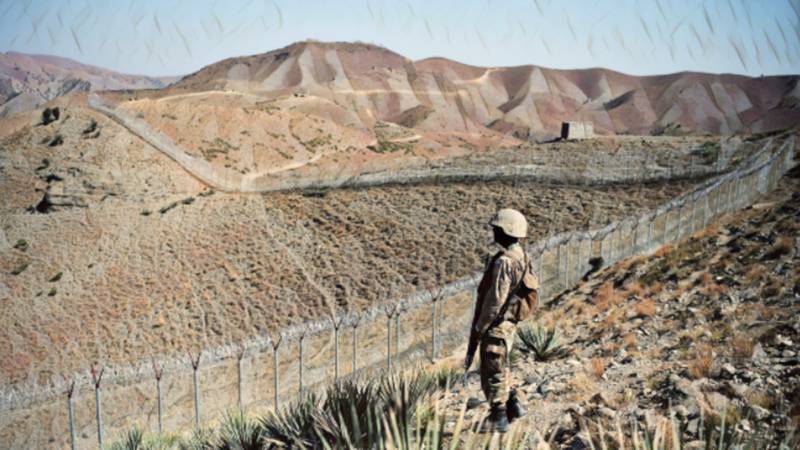
In my recent online interview with Republican politician Sajid Tarar, I posed a pivotal question: What is the world’s problem with Pakistan?
Tarar, hailing from Mandi Bahauddin, pursued law studies at the University of Baltimore. Renowned as a close aide to former US President Donald Trump and an advisor to the Republican Party’s election campaign for the upcoming US Presidential elections in 2024, Tarar provided insights into the concerns the West harbours about Pakistan.
There are four key issues troubling the West regarding Pakistan: geographic location, nuclear weapons, double games, and support for the Taliban. Pakistan has traded its geographical location for meagre gains; without borders shared with India and Afghanistan, Pakistan would be as inconspicuous on the world stage as Burma and Nepal. In the US, Pakistan has garnered a reputation for engaging in duplicity, rendering itself an unreliable global partner. This perception stems from the actions of its corrupt ruling elite, fixated on acquiring properties in Toronto, London, and Dubai with funds procured from the IMF and other sources on behalf of the US. Pakistan’s dealings with the West and the US are perceived as serving personal interests of the individuals rather than those of the nation. Moreover, Pakistan’s perceived support for the Taliban has strained its relationship with the US, a force they have combated for two decades, resulting in an exit from Afghanistan with minimal tangible results.
Tarar highlighted a discernible rift in Indo-US relations in recent years. The burgeoning Indian economy and its expanding influence in the global south, particularly the Pacific region, have become sources of concern for the US. India’s failure to engage with China militarily in Ladakh and its abstention from involvement in the Ukraine war have further exacerbated this concern. Instead, India has persisted in processing Russian oil in its refineries and clandestinely selling it on the black market, benefiting both the Russian economy and its own. These developments set the stage for General Asim Munir’s recent visit to the US, a visit accorded significance by the US administration despite criticism for engaging with an army general rather than a democratically elected leader.
Sajid Tarar deems the upcoming elections in February 2024 as inconsequential, predicting the instalment of a feeble elected government. He advocates for a competent technocratic government with an efficient cabinet, distinct from the present one, which he calls B grade. Cabinet members should not hold dual nationality, and their businesses and families should be rooted in Pakistan. To recalibrate its priorities, Pakistan must redefine itself as a nation-state with its capital relocated to Quetta.
This is not the first time I have come across this idea. And it makes a lot of sense too. The relocation of the capital holds numerous benefits.
It would address the grievances of the Baloch population and strategically foster closer ties with Western neighbours, Iran and Afghanistan, where future energy resources and trade routes are located. Moving the capital away from the Indian borders would also be advantageous from a defence point of view. Moreover, this move would contribute to reshaping Pakistan’s demographic and cultural landscape and dismantling the elitism associated with the present capital, Islamabad, that has become synonymous with corruption and bad governance.
This kind of major move of national importance cannot come into effect without the consent of all political forces, the establishment, and of course the Baloch people. The Baloch political leadership might have one major concern: the influx of the country’s population into Baluchistan province, and hence undermining the local population in terms of numbers. These concerns and fears can be addressed by introducing necessary amendments in the constitution, ensuring and safeguarding the rights and interests of the local Baloch population.
If it were to happen, it would put an end to Punjabi dominance in the country’s affairs once and for all.
Writing this also brings to mind Henry Kissinger's reflections that Pakistan must decide whether it is a country or a cause. For Pakistan to function as a country, it needs to establish effective institutions and possess a clear sense of direction. It should articulate a vision for functioning as a modern state while retaining its indigenous cultural identity. To achieve this, certain corrections are imperative. Artificially infused ideas and ideologies must be discarded, allowing the nation to navigate freely on the currents of its cultural force—a natural trajectory for any society.
Most crucially, Pakistan’s educational and cultural institutions need a total overhaul.
Deriding national culture in cheap comedy TV shows has served no constructive purpose. Entrusting cultural institutions, such as film, to individuals of low standing has only resulted in poor taste. Similarly, placing education in private hands has produced overwhelmingly unwanted results. These conclusions also address Sajid Tarar's query posed to me and our viewers during our discussion: Why have our university graduates not excelled in significant global institutions, while graduates from the Indian Institute of Technology hold top positions in Google and other international organizations?
With two decades of close association with higher education in Pakistan, I am of the considered opinion that higher education is not a fundamental right—basic education extends up to grade 12—and therefore, it should be accessible only to those who merit it. It should be provided free of charge. Those who do not qualify should be directed towards polytechnic institutes, where they can acquire practical skills. This approach would enable them to thrive in their chosen professions rather than leading a frustrated life with seemingly useless higher education degrees.
Once Pakistan has done this arduous task of reimagining itself as a modern state, only then will it be able to determine its political course and formulate a realistic foreign policy with a clarity of vision. It will then become possible to define the national interest only when it has defined itself – a country or a cause. These goals cannot be achieved without revamping cultural and educational institutions.
The Americans can’t do this for us; we need to do it ourselves.

